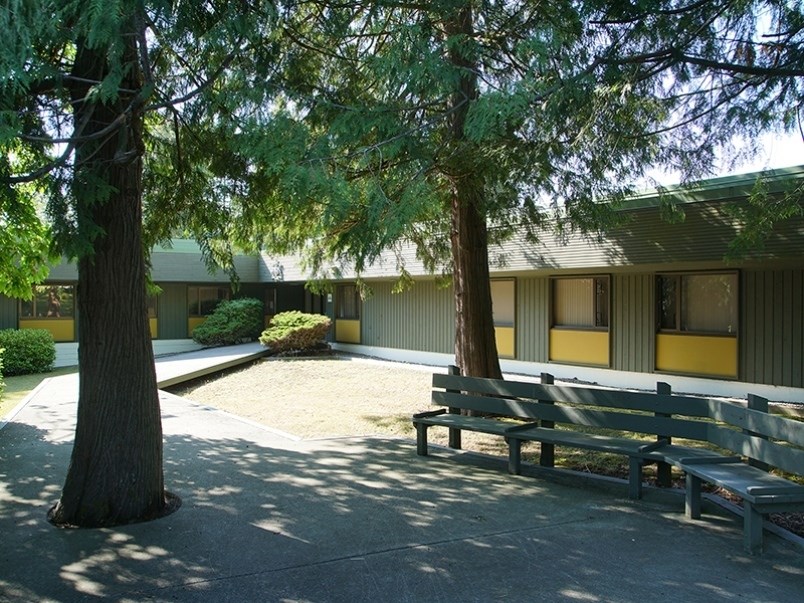Separate appeals of the conviction and the sentence of a man tried in Powell River for having sex with an underage girl have been abandoned.
In October 2023, a BC Supreme Court jury found Kasimir Tyabji-Sandana, 36, guilty of sexual interference of a person under 16. In June, justice Peter Edelmann sentenced Tyabji-Sandana to two years, less a day, of 24-hour-a-day house arrest and a subsequent three years of probation. The jury acquitted Tyabji-Sandana of invitation to sexual touching of a person under 16.
Lawyer Mary Ainslie, representing the attorney general of BC, applied June 27 to the BC Court of Appeal, seeking “the sentence of imprisonment be increased to at least four years.”
The Crown’s notice of appeal alleged Edelmann erred in four ways: by opting for house arrest instead of jail; imposing a sentence that is demonstrably unfit, given Tyabji-Sandana’s blameworthiness and responsibility; failing to prioritize denunciation and deterrence; and by imposing a sentence that is demonstrably unfit.
The next week, on July 2, Tyabji-Sandana’s defence lawyer, David Tarnow, applied to appeal the conviction. Tarnow wanted appeal court judges to overturn the jury’s verdict and order a new trial.
The defence appeal was based on an allegation that Edelmann erred in his charge to the jury. The application cited a 1991 Supreme Court of Canada sexual assault case known as R. v. W.(D.) that, in the words of the high court, “pitted the credibility of the accused against that of the complainant.”
Tarnow abandoned the conviction appeal on August 27.
Almost two months later, on October 25, the Crown abandoned the sentence appeal. Neither notice of abandonment filed with the Court of Appeal registry includes reasons.
At trial, the jury heard how Tyabji-Sandana had a sexual relationship in 2016 with a girl after she volunteered to work on the farm run by his mother Judi Tyabji and her then-partner Gordon Wilson. The victim, whose name is covered by a publication ban, had volunteered in order to earn credits toward high school graduation.
Tyabji-Sandana testified in court that he never explicitly asked her age and did not know her true age until after he was charged in 2020.
During the sentencing phase, Crown prosecutor Jeffrey Young had asked Edelmann to send Tyabji-Sandana to jail for four to five years, noting that he committed the sexual interference crime while on bail after a 2015 drug bust in Calgary. Tyabji-Sandana pleaded guilty in 2018 in Alberta to attempting to possess acetyl fentanyl and was sentenced to eight months of house arrest and eight months under curfew.
But Edelmann chose the house arrest sentence proposed by Tarnow, based on Tyabji-Sandana’s Indigenous heritage on his birth father’s side and his struggles with alcohol since his teenage years.
A spokesperson for the BC Prosecution Service would not disclose what specifically caused the Crown to abandon the appeal, citing the Crown’s case confidentiality policies.
“The reason for abandoning the appeal was that the factors justifying a Crown sentence appeal were no longer satisfied,” said acting communications counsel Ann Seymour, who referred a reporter to the Crown counsel policy manual.
The manual states that an appeal will not be approved unless one of three conditions applies: the proposed appeal involves a serious offence or relates to an offender who constitutes a serious threat to the community; the proposed appeal raises an important question of general application concerning the principles of sentencing; or the public interest in the proper administration of justice requires that the sentence be appealed.
In August, BC Supreme Court justice Douglas Thompson agreed to reduce Tyabji-Sandana’s house arrest so that he could leave his Vancouver residence for an hour every morning, except for three hours every Saturday afternoon. Thompson did so despite Tyabji-Sandana’s July 18 arrest for breaching his house arrest conditions the week after Edelmann handed down the sentence.
On June 11, Tyabji-Sandana called his conditional sentence supervisor to say he had checked-in to an addiction treatment facility in Surrey on June 10.
He planned to stay for 60 days, but left the facility on June 24 and informed the supervisor two days later. Tarnow said in court that his client left the facility because he could not afford to stay longer.
Thompson accepted the joint submission by Crown and defence that the day Tyabji-Sandana spent in custody and loss of credit toward his two-year sentence were sufficient penalties.
Join the Peak's email list for the top headlines right in your inbox Monday to Friday.



